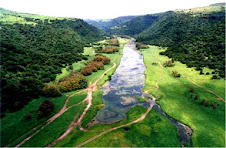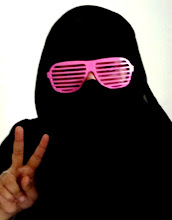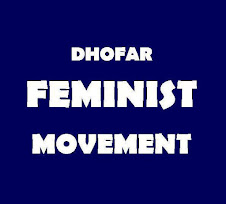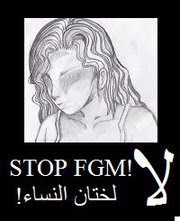Before I spew forth one more word, rest assured that I speak only of practices in Salalah. I am not familiar whatsoever with election practices in other parts of Oman.
Oman's Majlis Al Shura is the only version of an elected parliament that Oman can speak of. The duties of this group of men consultative assembly are no where near those of a proper parliament, but they are something nonetheless. The members are sometimes ridiculous, and at other times effective. I've watched various live discussions they've had, and some have been ... well.... a little embarrassing.(example, demanding an educational children's channel to raise our kids on our behalf... yup, sounds like a critical item on the agenda for parliament). Nevertheless, having an elected body is a step in the right direction. We have a long way to go, though.
Official schpeal sources will tell you that Majlis Al Shura is the only democratically elected legislative body in Oman. Unfortunately, our version of democracy is a little skewed. If you wish to read more about the duties of Majlis Al Shura, refer to this shallow little piece from Wikipedia.
The Majlis Al Shura consists of 84 members representing all Wilayat of Oman. Because Salalah is a large-ish wilaya, we get to elect 2 members. Every four years, people in Salalah trundle along to local voting centers to select their candidates. The next elections are in October. Sounds all nice and dandy, right? Wrong.
Despite the fact that Oman doesn't allow political parties officially (which completely defies the concept of democracy), political parties exist indeed in the south of Oman... in the form of tribes and tribal alliances. Tribal politics are complicated but they are intense politics nonetheless.
When it comes to Majlis Al Shura elections, the Wilayat of Salalah is divided into three political parties:
Group 1: The Qara Tribes... in other words, most of the mountain tribes within the wilayat of Salalah mountains. I'll not list any tribal names to avoid being arrested for causing havoc.
Group 2: The Al Kathir tribes... in other words, the fancy schmancy town tribes in addition to a few bedouin tribes, etc.
Group 3: The Salalah ِAlliance.... a mix of minorities (black families, small town tribes, some mountain families, etc). In essence, a large alliance of smaller groups.
Around election time, these three groups become very active. The number of meetings increase, tribal male discussions heat up, and the number of alert bodies at our lovely intelligence hub increases. Of course, Oman will never officially admit that political parties exist in the form of tribal alliances, but rest assured they do.
Now, from my modest observation as a redundant female (not of any value to the alliances), I have found that the third party, known as the Salalah Alliance, are more progressive. They've always been more progressive. The reason probably goes back to the fact that they are a group of minorities. They may not be so obsessed with tribal power. This is just my observation.
So, the big question is, ... how do the alliances nominate their candidates? And how do they secure votes? Well, they've all been following almost the same exact method for years. I'll give you an example: The Qara Tribes have a simple rotation method. Every four years, one of their tribes in a particular alliance gets to select the nominee from within their tribe. This year, it's the turn of the T****k tribe. The male members of this tribe will have dozens of intense meetings and will finally nominate someone to represent the Qara Group in the elections. Meanwhile, all the Qara Tribes will be busy counting the number of eligible voters to estimate the number of votes this person will get on election day. They automatically assume that every adult in the Qara Tribes will vote for the person nominated within the T****k tribe. Fair or not, this is how their system works.
The same thing will be happening in the other alliances... people counting the number of eligible voters within their tribes. So basically before election day even arrives, people have a pretty clear idea of who will win. They automatically assume that everyone over the age of 21 is going to blindly vote for the person the men chose in their closed meetings.
My own family goes around counting the number of women and men over the age of 21. On election day, I'm normally given strict instructions on whom to vote for. I usually vote based on these instructions because I know nothing of the other candidates. When you go to the Ministry of Interior's website, they should have a list of all the candidates from Oman with their resume/CV and picture, etc.They never bother with updating their website, so there's no way in hell I can know who the other nominees are and whether they deserve my vote. It's the crappiest system e.v.e.r.
So back to the tribal rotation system.... I tried raising the obvious question to a member of the T****k tribe, "What if you can't find a suitable candidate in your tribe this year?". He got all huffy and puffy and said they WILL. I dropped the subject, but it's been bothering me...
Are we just supposed to assume there are a dozen qualified male members in each tribe that are ready to run for parliament? Sounds impossible to me, so I'm pretty sure they often end up selecting the best of the worst just to keep up with tribal alliance tradition.
I have had zero faith in the Shura system because of these tribal practices. Every year the more senior men in my alliance will get together and argue about who to nominate from the alliance for a particular election. They'll finally agree on someone, and then at the very last moment shuffle their women over to the voting centres and force them to vote. Why the heck should women have a say anyway in selecting the alliance's candidate? We're only the guaranteed vote. We're only second-class citizens, and tribal politics are male-oriented anyway.
Sarcasm aside, something remarkable happened this year. I'm still in awe.
The Salalah Alliance (Group 3) decided to do something different (I told you they were progressive.. not Netroots Nation progressive, but for us ... progressive). They decided to follow a strict evaluation process to select the candidate who will represent the Salalah Alliance this year. Yes you heard me right, a formal EVALUATION PROCESS. Not a group of men around a fire sipping tea and throwing around names, but an actual P.R.O.C.E.S.S.
The alliance had around 8 final candidates. These candidates went through a tough evaluation session on Saturday August 8th. I'm pretty sure there was zero media coverage at this event, so I'm reporting about it here because I find it truly remarkable for such a tribal society.
The alliance chose six panelists I believe (those who question the candidates and challenge them). The panelists included the likes of the head of Oman's Journalism Association. They then selected 40 judges/evaluators from within the alliance (the evaluators being well educated, qualified, balanced male members of the alliance). They then selected a further 8-10 observers from outside the alliance. These were also highly educated and experienced men.
On Saturday August 8th, that roomful of men witnessed history in the making. The eight (I think eight) candidates had to sit before this crowd, be interrogated by six panelists, and then be judged by 40 evaluators, while being monitored by a group of observers.
How were they evaluated? They followed a 40/60 method. 40% being the qualifications and experience of the candidates, and 60% being the person's plan and performance in front of the judges. Each judge had to fill in scores on pieces of paper. A separate committee filtered through these scores and announced the winner.
The Salalah Alliance officially selected Dr. Mohammed Al Ghassani as their final candidate following a strict, monitored, evaluation process. Do you have ANY idea what this means? This could be the beginning of the end for tribal powers in Salalah since Majlis Al Shura has always been one of their major ways of exercising tribal power.
The other two alliances, Qara Tribes, and Al Kathir are following the same old tribal rotation system, but I'm pretty sure they've taken note of the new path the Salalah Alliance have taken and I'm pretty sure soon enough they'll do something similar and start choosing candidates based on qualifications/competence.
I'm sure there were few glitches in the evaluation process, but it's still a remarkable first step towards proper democracy. I'm in awe. Did I already say that?
So, two more major questions remain for those of you who are not familiar with our system?
Question One: What actually happens on election day?
Answer: all voters will head to the voting centers. There will be a list of candidate from Salalah. There will be three main candidates representing the three alliances, The Qara Tribes, The Al Kathir Alliance, and the Salalah Alliance. There may also be a small number of stand-alone poor souls who've bravely stood for parliament even though they know they don't stand a chance against the candidates from the three alliances who have a guaranteed number of pre-determined votes.
By the end of election day, two of the three alliances will have won the Salalah seats in parliament. Normally it's the Salalah Alliance and the Qara Tribes.
Question Two: Where the heck do women fit in?
Answer: They Don't.
Well, actually, they do. Women are considered guaranteed votes. We have no say whatsoever in nominating someone, but on election day we are blackmailed and forced by our male relatives to go and vote for the person they chose around that fire while sipping tea.
In terms of standing for parliament, another remarkable thing happened this year. One of the Salalah Alliance candidates was a WOMAN until the very last minute. She backed out at the last minute before the evaluation session on the 8th of August because according to a source who spoke to her "She didn't think voters are ready for a woman". I think she's pretty qualified, and I'm pretty sure she would have continued if men hadn't convinced her to back down. Pretty sure it wasn't her own decision. Nevertheless, kudos to her for stepping forward in the first place. Some women have stood for parliament before, but they've been loners, not nominated by one of the three big alliances. Salalah has never had a female member of parliament. In fact, Oman's record as a whole sucks. I think at the moment there's one woman? Or is it down to zero now?
Overall, women in Salalah are nothing more than guaranteed votes when it comes to the tribal alliances for Majlis Al Shura. I asked my T****k pal if the women in his tribe will have a say in the selected candidate this year, and he almost bit my head off. Why would I suggest such a ridiculous thing?
I have plenty more questions to ask, so I've sent out feelers into my social network to find out the following:
1) Whose idea was it to deviate from the norm and do something sensible?
2) How were the 40 judges selected?
3) What kinds of questions were the candidates asked on August 8th?
4) Why the heck weren't there any women in that room on August 8th? At least as observers?
5) What was the exact criteria on those evaluation sheets?
6) Are more tribes going to join the Salalah Alliance because they now have a fair system in place?
7) Have other parts of Oman caught wind of this?
8) Are people from other alliances going to secretly vote for Dr. Mohammed Al Ghassani because they believe he was actually selected properly based on competence?
Overall, remarkable change.
I'll update you if I get more details or answers to the questions listed above. Thanks for listening reading to the end of the post. I really appreciate it.
Your Truly,
Nadia






